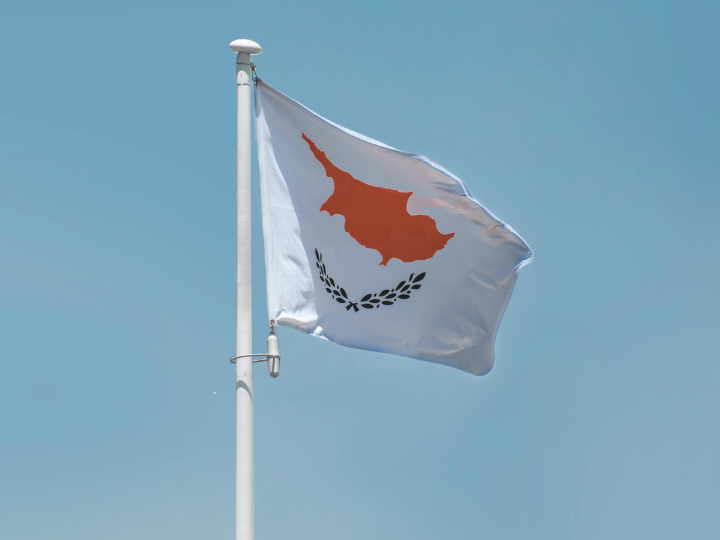by Aurelie Pugnet
Nicosia is lobbying to appoint a special envoy for Cyprus in the hope of restarting talks with Turkey and moving toward a settlement on the divided island, using the EU accession process as an incentive, EURACTIV has learnt.
The new momentum to address the issue comes in the wake of last month’s re-election of Turkish President Recep Tayyip Erdogan, as well as the Greek and Cypriot elections.
“One of the envisaged tasks of [a new special envoy] would be to talk to Ankara, with a view to highlighting all that Turkey stands to gain from a reunified Cyprus,” a Cypriot official told EURACTIV.
“The EU is uniquely placed to offer such incentives to Ankara, which have been on the table for a number of years but have not materialised for different reasons,” they said.
The possible appointment has not yet been discussed in an EU format but is likely to be brought up when the bloc’s foreign ministers meet on Thursday (20 July), four people with knowledge of the matter told EURACTIV.
The island of Cyprus was divided following a 1974 Turkish invasion, triggered by a brief Greek-engineered coup. The northern part has since been under the control of the self-proclaimed government of the ‘Turkish Republic of Northern Cyprus’ (TRNC), which is not officially recognised by the international community.
The last attempt at settlement talks dates back to 2017, when talks to reunify the divided island collapsed, marking the end of a process seen as the most promising in generations to heal decades of conflict.
Window of opportunity
The new push comes after Ankara’s surprise demand last week that the EU revive Turkey’s stalled EU membership bid as a precondition for unblocking Sweden’s bid to join NATO.
While Ankara has moved forward on several Western economic reforms in the past years, its accession process has been de facto frozen since 2016, over domestic coup attempts, rule of law deterioration and strained relations with its EU neighbour Greece.
In the NATO deal found to accelerate Sweden’s entry into the Western military alliance, Stockholm supported Turkish efforts for EU visa liberalisation and the modernisation of the customs union.
On Thursday, EU foreign ministers are expected to “review the EU’s relationships with Turkey”, a senior EU official said ahead of the meeting.
“The new government is the right moment to discuss one of the most important relationships of the EU, it is one of our biggest neighbours and [an EU] candidate,” they said.
Ahead of the talks, the EU’s diplomatic service (EEAS) produced a short memo, seen by EURACTIV, which – next to Ankara’s chances for its membership bid – advises foreign ministers to consider how to “actively contribute to the speedy resumption of Cyprus settlement talks”.
The idea is also not new, as EU leaders in 2020 said they stand ready to “play an active role in supporting the negotiations”, including in naming a representative to the UN Good Offices Mission, once the UN-led process is relaunched.
EU leaders in June also reiterated the EU “is ready to play an active role in supporting all stages of the UN-led process, with all appropriate means at its disposal”.
“[EU leaders] linked Turkey’s stance vis-a-vis the Cyprus problem with the future of the EU–Turkey relations in the effort to re-energise the relationship by utilising the post-election momentum,” the Cypriot official added.
Special envoy
Nicosia, in this context, is hoping to appoint an EU special representative to encourage both sides’ authorities to resume negotiations.
“Constructive steps by Ankara on the Cyprus problem will allow us to consider several openings towards Turkey in response, in the form of a gradual and mutually beneficial package, in parallel with the resumption and progress in the UN-led negotiations, creating thus a win–win situation,” the Cypriot official said.
“The EU has the tools and the incentives to help break the stalemate,” the Cypriot official said, in reference to a deeper relationship.
The envoy would report to EU leaders in the European Council and liaise with the United Nations and the guarantors of the agreement, which is in the lead on the settlement process, EURACTIV understands.
It is, however, not clear what role the EU would play in such settlement talks at the UN level.
“The appointment of a well-known and respected political personality would provide for the creation of much-needed momentum in the efforts to resume the Cyprus problem negotiations,” the Cypriots argued.
“Our UN sides have been quite receptive to this idea,” the Cypriot source said.
However, EU diplomats believe the talks cautioned that the process may not succeed, as the positions are far away from each other or would take a very long time to bring any fruit.
For the time being, modernisation of the customs union and visa liberalisation “seems to be part of the options we are talking about” to revive the relationship, one EU diplomat said, adding that restarting accession talks “still needs to be debated”.
*first published in: Euractiv.com




 By: N. Peter Kramer
By: N. Peter Kramer

